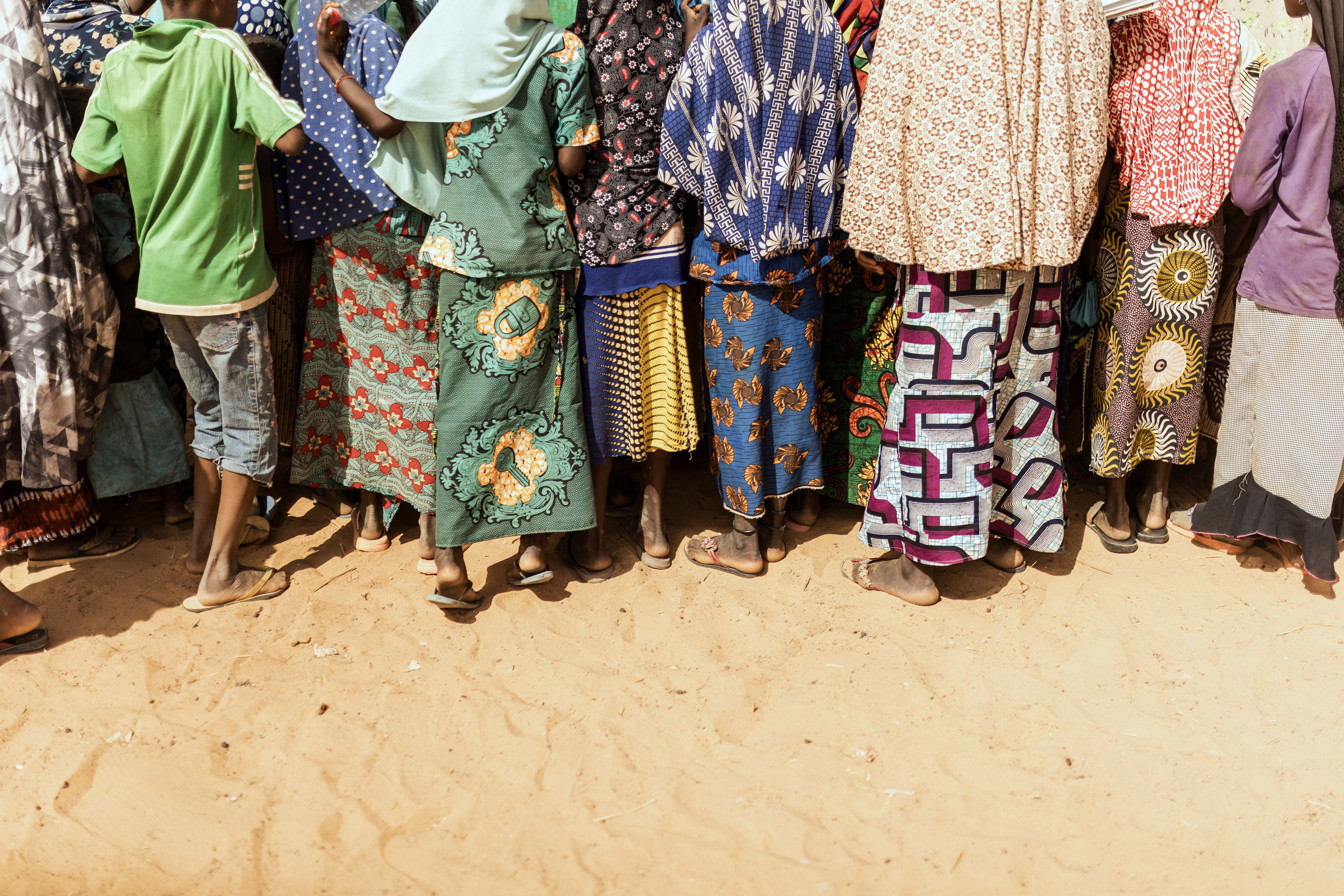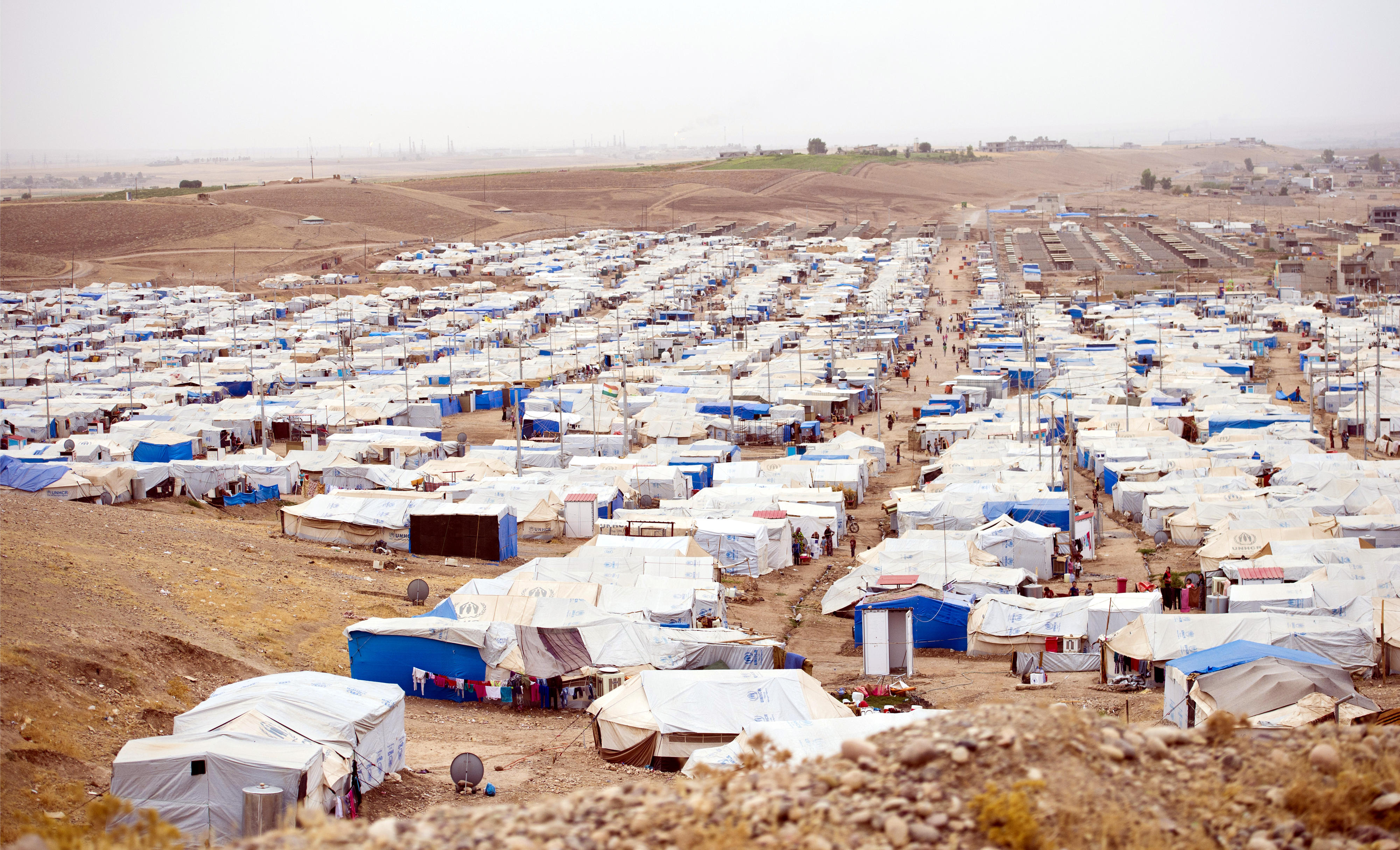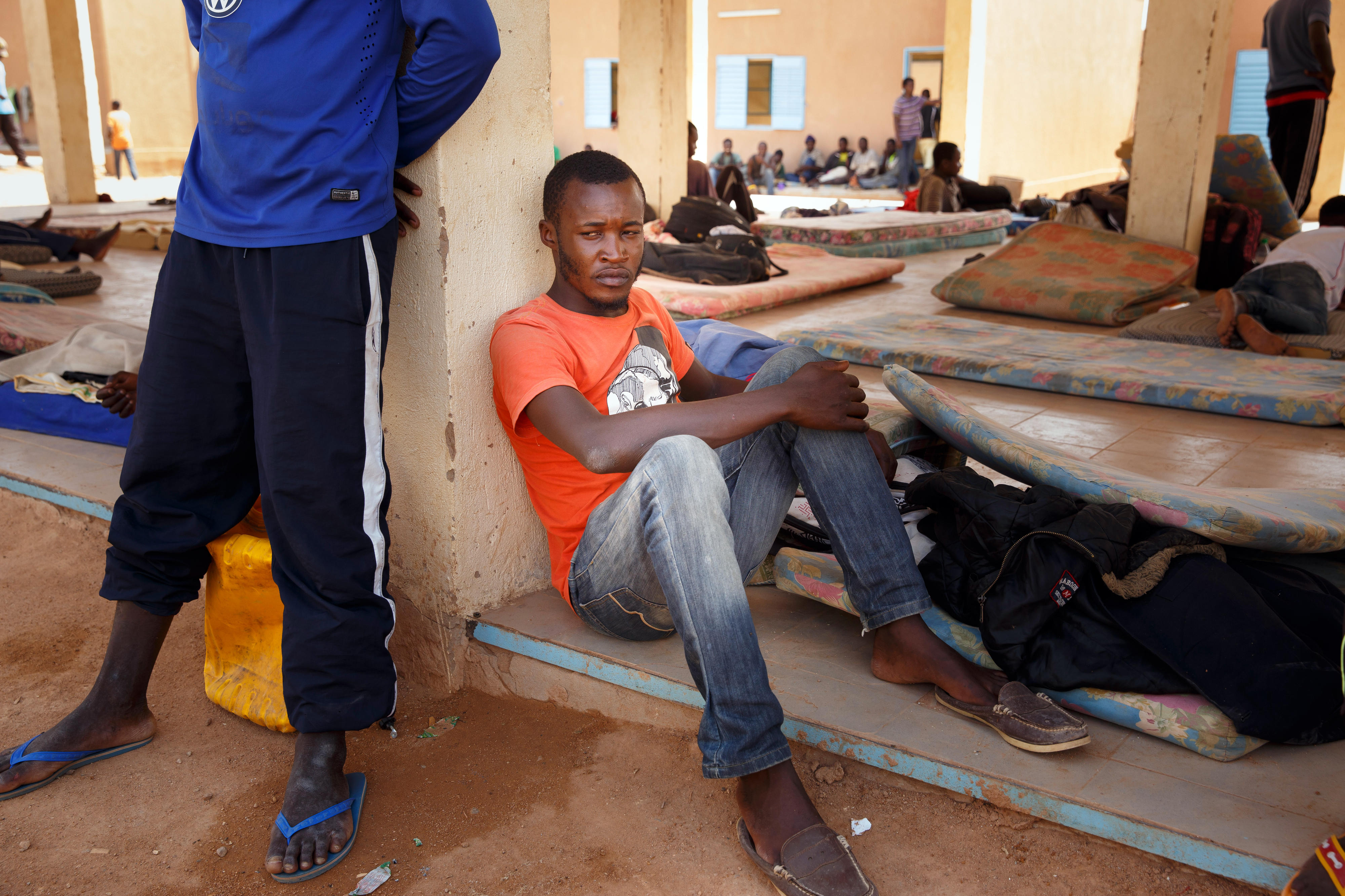Migration and displacement Host and transit country for displaced people
Refugees in Ouallam, Niger
This is presenting the Niger government and security forces with great challenges, and tying up funding that would be urgently needed for the country’s development. According to figures compiled by the UN Refugee Agency (UNHCR), some 300,000 people have found refuge in the Niger. In addition, there are more than 335,000 people who are internally displaced (as at end of February 2024).
Many of the refugees are from Mali and Nigeria, having fled their homes to escape the terrorist attacks of Islamist organisations such as Al Qaida in Maghreb or Boko Haram. The displaced people also include many citizens of the Niger who had settled in Nigeria and have now returned to their home country seeking refuge. In addition, the Niger is an important transit country for refugees and migrants from West and Central Africa. Two of the main migration routes go through the desert town of Agadez in the Niger, which is the starting point for those seeking to travel onwards to Libya and Algeria, and from there across the Mediterranean and into Europe. Up to 150,000 people pass through the country every year.
German support for refugees and migrants
Reception centre of the the International Organisation for Migration in Agadez, Niger
Germany is supporting the Niger in providing for refugees and migrants and in coping with the challenges caused by different types of migration.
For example, schools are being built and equipped in host communities, and support in the form of labour-intensive programmes is being provided for the development of basic infrastructure (health clinics, markets), in order to create jobs for the local population. Other projects include vocational training, upskilling measures and job creation (including for rural workers, mechanics, tailors), help with business start-ups through seed capital, literacy campaigns, and campaigns for sex education and family planning.
Germany is also involved in creating alternative ways to generate income along the transit routes, enabling the population to become more independent.
A new programme launched by Germany in 2023 is supporting the social and economic self-determination of displaced women.
In addition, Germany is advising the Niger on the drafting and implementation of its national migration policy.
As at: 05/05/2023


